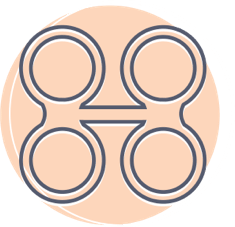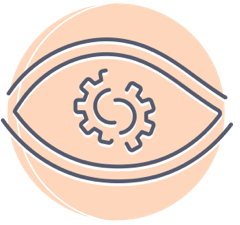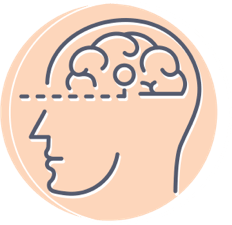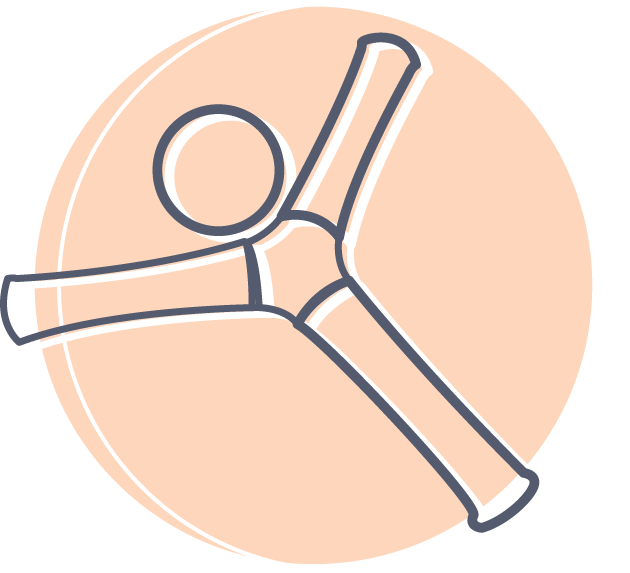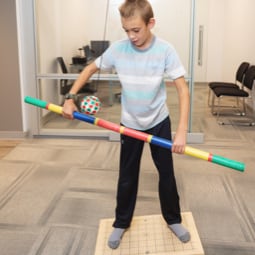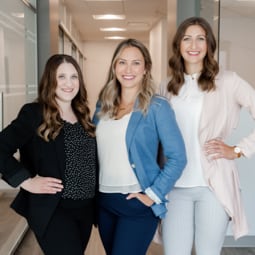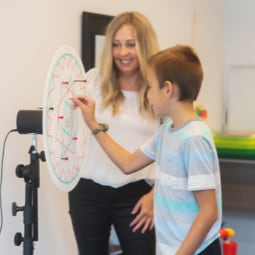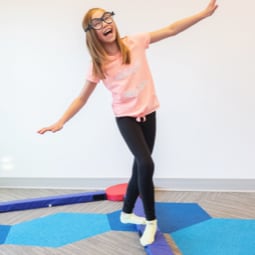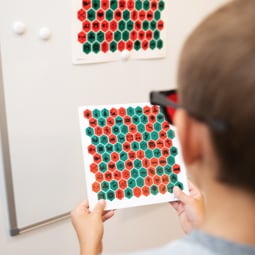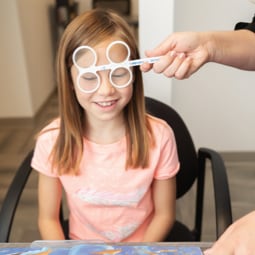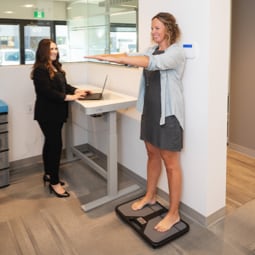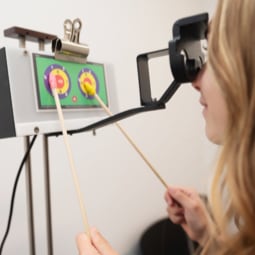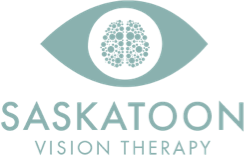Vision Therapy Goes Beyond 20/20
At Saskatoon Vision Therapy, we’re excited to see patients with a variety of conditions, all with different reasons for seeking vision therapy. Our team works with every patient to find the root cause of their visual issues and designs a treatment plan that is personalized to them.
Vision is complex and goes much beyond the patient’s ability to see 20/20. Vision happens in the brain, and we are here to help patients maximize their vision functioning by using neuroplasticity to enhance or rewire the brain to function in a more effective and efficient way.
Discover the difference vision therapy can make in your life
* Closed on statutory holidays and long weekends.
Vision Related Learning Issues
Visiting an optometrist is an important step in protecting your family’s eyes and checking their ocular health. However, some potential vision issues are more difficult to detect during a routine eye examination. For children, in particular, these issues can lead to problems with learning.
Once the underlying cause is identified, vision therapy can be used to help control and correct these visual issues. As 80% of what children learn in school is visual, taking care of their vision is crucial.
Common symptoms of vision-related learning issues:
- Headaches or eye strain
- Blurred vision
- Double vision
- Crossed eyes
- Short attention span during visual tasks
- Turning or tilting the head
- Excessive blinking or rubbing the eyes
- Dislike or avoidance of reading and close work
- Losing place while reading
- Slow reading speed
- Omitting or repeating words or letters when reading or writing
- Difficulty remembering, identifying, or reproducing shapes
- Poor eye-hand coordination
Strabismus & Amblyopia
Strabismus, also known as an eye turn or crossed eye is a condition where a patient’s eyes do not point in the same direction. Vision therapy is used to correct this directional difference. This can help improve binocular vision. Sometimes surgical correction of strabismus may be required. Talk to your optometrist at Saskatoon Vision Therapy to see if a referral for surgery may be required.
Also known as lazy eye, amblyopia is a development problem where the patient’s eye is unable to attain normal visual acuity, even with glasses or contact lenses alone. Glasses or contact lenses together with visual stimulation of the affected eye may be required. Amblyopia can often be caused by strabismus, otherwise known as an eye turn. Vision therapy can help both eyes work together equally, correcting amblyopia.
Traumatic Brain Injury, Concussion & Whiplash.
Your brain and your eyesight are intrinsically connected. If you suffer from a traumatic brain injury (TBI), concussion or whiplash, your vision may be affected.
Vision therapies can help you regain control of your sight by making focusing more comfortable, providing clearer vision, treating binocular problems, reducing double vision, lowering light sensitivity, and minimizing visual confusion.
Sports Vision Training
Even though every sport requires a different set of skills and performance from athletes, every sport requires good visual acuity, depth perception, and high level processing. Sports vision training creates customized vision therapy plans to help individuals achieve their sport-specific goals.
By strengthening the connection between the eyes and the brain, vision therapy can help develop the following skills necessary to improve your game
Visual Reaction Time
An athlete’s physical speed and strength are less effective if they aren’t able to react to an event quickly enough. We use vision therapy to help improve reaction time for athletes.
Visual Tracking
In many sports, things move very quickly. To compete optimally, athletes need to be able to track what’s happening around them. Visual tracking is the process of accurately following a fast-moving object.
Hand-Eye & Body-Eye
Coordination Generally, a major component of vision therapy is developing a strong connection between the eyes and the brain. However, in sport, this connection goes beyond just the eyes and the brain, to include the body, as well as the hands… and even the feet.
Visual Processing/Perceptual Skills
When athletes compete in their sport, their eyes are constantly sending new information to their brain. In high-stress situations, it’s important for this information to reach the brain quickly and accurately. Vision therapy can be used to help increase an athlete’s visual processing and perception.
Peripheral Vision Awareness
Nearly every sport requires good peripheral vision. Without it, athletes would have difficulty seeing when other players are approaching them, or where the next play is to be made. A sports field is a big, vast area that requires good vision to see. Peripheral vision awareness focuses on improving the individual’s ability to see what’s on either side of them while their eyes are pointed forward.
Common Vision Therapy Diagnoses
First and foremost, our dedicated team is here for our patients. Whatever the issue, we’re going to work with you and your family to find a solution. The following are some of the more common issues for which we provide treatment:
Amblyopia
Also known as lazy eye, amblyopia is a development problem where the patient’s eye is unable to attain normal visual acuity, even with glasses or contact lenses alone. Glasses or contact lenses together with visual stimulation of the affected eye may be required. Amblyopia can often be caused by strabismus, otherwise known as an eye turn. Vision therapy can help both eyes work together equally, correcting amblyopia.
Strabismus
Strabismus, also known as an eye turn or crossed eye is a condition where a patient’s eyes do not point in the same direction. Vision therapy is used to correct this directional difference. This can help improve binocular vision. Sometimes surgical correction of strabismus may be required. Talk to your optometrist at Saskatoon Vision Therapy to see if a referral for surgery may be required.
Understand Your Vision
Our practice believes vision therapy can get to the root of deeper issues. Learn about the difference vision therapy can make for your family.
Our Location
Our Address
- 110-318 Wellman Lane
- Saskatoon, SK S7T 0G3
Contact Information
- Phone: 306-244-2020
- Fax: 1-306-500-1953
- Email: [email protected]
Hours of Operation
Closed 1pm-2pm
- Monday: 8:00 AM – 5:00 PM
- Tuesday: 9:30 AM – 8:00 PM
- Wednesday: 8:00 AM – 5:00 PM
- Thursday: 8:00 AM – 5:00 PM
- Friday: 8:00 AM – 5:00 PM
- Saturday: 8:00 AM – 1:00 PM
- Sunday: Closed
* Closed on statutory holidays and long weekends.




